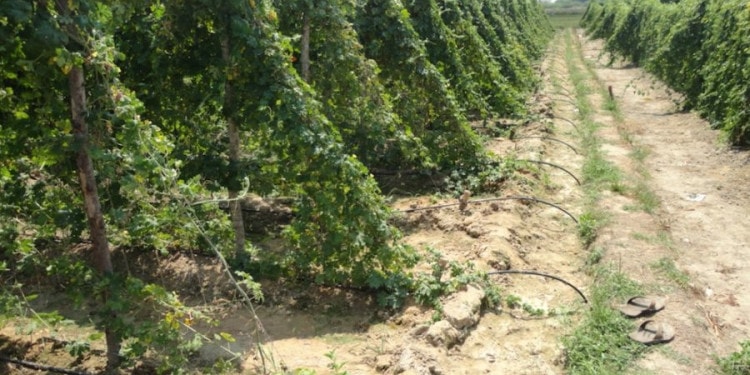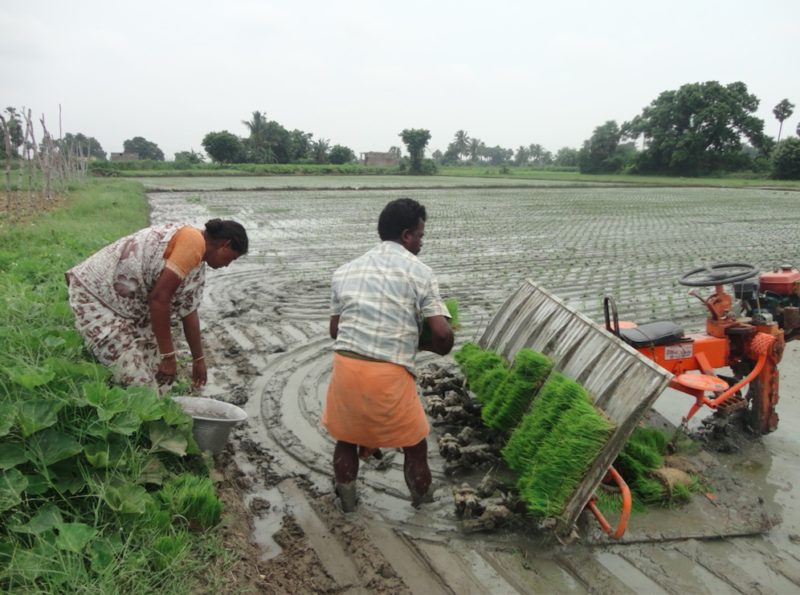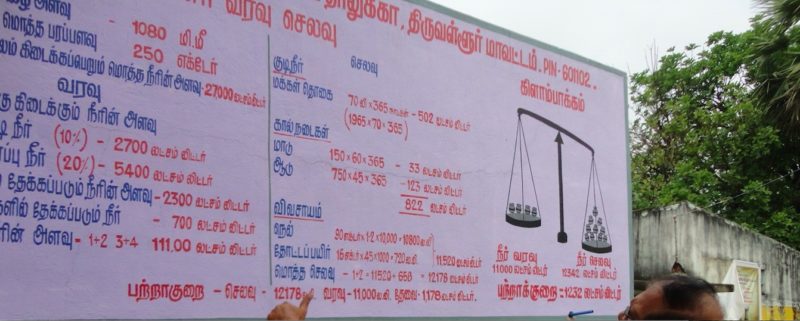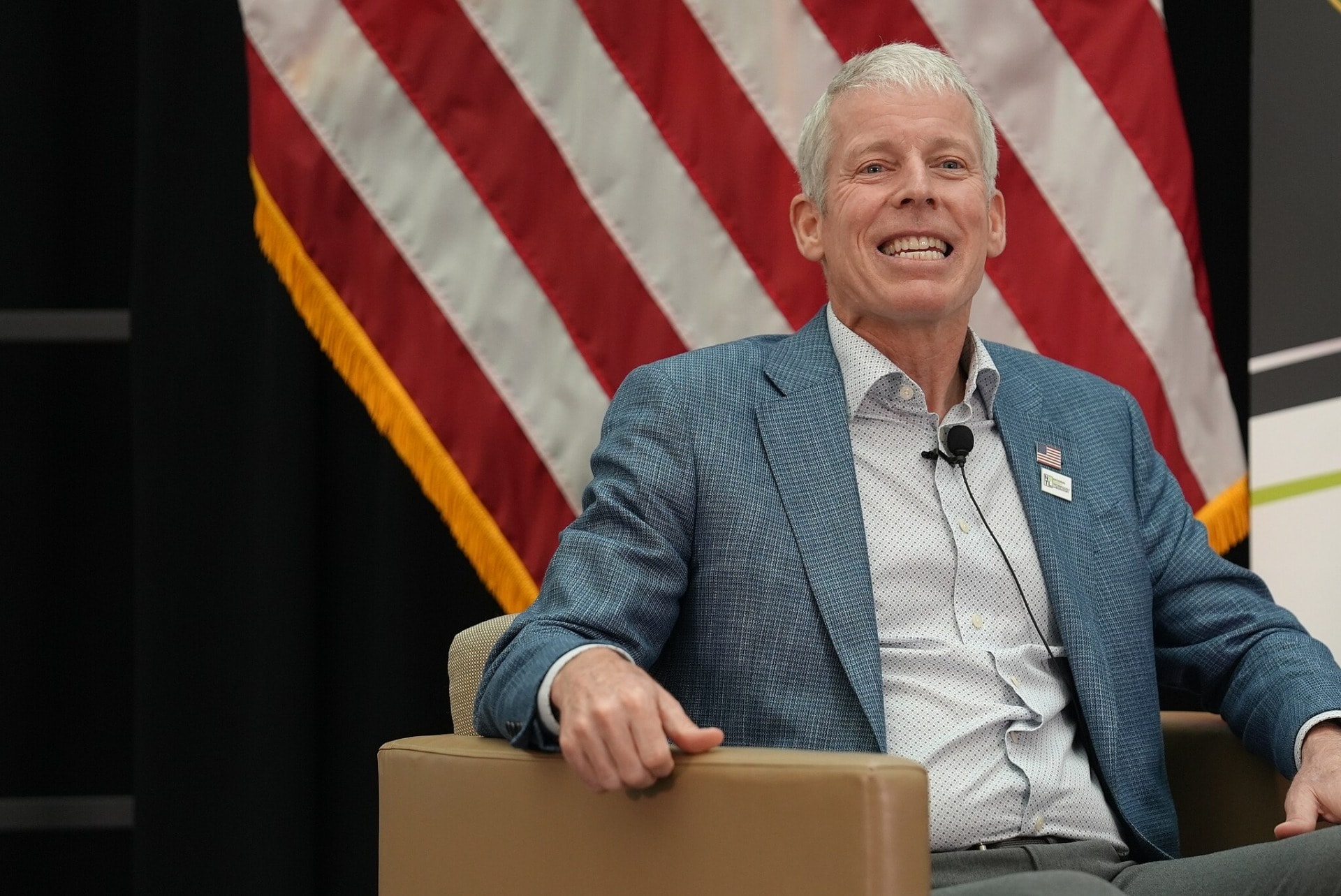In an agrarian country like India, agriculture is often projected as an occupation or livelihood for approximately 60% of the population, neglecting the fact agriculture supports the life of the entire population. Agriculture and allied sectors have tremendous potential for providing more employment opportunities and consequently mitigating the levels of rural poverty; this could ensure nutrition and food security on a long-term basis.
However, this is not possible without support-based services for the farmers, in terms of technology transfer, improving input use efficiency, promoting investments in agriculture, and creating a favorable and enabling economic environment. Moreover, value addition and supply chain management, collective bargaining capacity, and direct linkages of the producers with the consumers (etc.) will certainly help farmers derive a better benefit from their produce. Therefore, in order to be able to meet the emerging needs of the agriculture sector, adoption of locale specific interventions is essential.
In The Photo: Technology adoption in paddy cultivation. Photo Credit: Institute of Sustainable Development.
Community Participatory Initiatives:
Lack of water, monsoon failures, unpredictable and extreme weather conditions, non-availability of farm labour, inadequate and inappropriate know-how and do-how of technology, exorbitant cost of inputs, undependable credit and insurance facility, lack of storage capacity, unreliable marketing linkage, and price volatility for produce are the critical issues which emerged from the participatory consultative process with farmers undertaken by ISD. This plays a part in its efforts to facilitate the farmers to find solutions for the challenges they face.
Evidently, there may not be anything new about the issues which emerged, however the novelty was in the process; importantly, the process involved not only the identification of the problems in farming, but also the farmers’ vow to work collectively to find solutions.
The process started with one Village Panchayat during 2009-10, and has reached 30 Village Panchayat’s in the year 2018, in the Thiruvallur district of the Tamil Nadu State, Southern India. The programme now known as the Water and Food Security (WaFoS) Programme provides training in sustainable agriculture practices, but also especially focuses on introducing dynamic farmers-collectives, group management, conflict resolution, group finance management and attitudes to addressing the social and health issues. Family farms with small land holdings get priority in the programmes and nearly 80% of the beneficiaries belong to this category.
 In The Photo: The interior of a groundwater recharge shaft while in function. Photo Credit: Institute of Sustainable Development.
In The Photo: The interior of a groundwater recharge shaft while in function. Photo Credit: Institute of Sustainable Development.
With a multidisciplinary approach and the development oriented with holistic interventions, which were implemented in a participatory mode on a multi-stakeholder platform, a number of local institutions were formed, such as Ellapuram Block Paddy Producer Company, Farmers Clubs (40), Dairy Cooperatives (4), and Joint Liability Groups (16). The field experience suggests that such institutionalisation has a better chance to sustain the impacts of the local initiatives.
Institutionalisation also helped in furthering better public (community) – public (public sector -service providers) partnership. Consequently, there are now standing examples of community managed borewell and solar powered irrigation systems, community maintenance of water bodies within the village, community managed Village Resource Centre, community managed Farm Input Centre, and also numerous other relevant interventions; these include: health camps for general health, cancer detection, eye care, oral health, veterinary health camp etc organized by the Farmers Clubs/Cooperatives.
Few Other Significant Impacts Are:
Income from dairy doubled: Families owning milking cows managed to escape the clutches of local vendors who used to exploit armers in many ways. They were mobilised in cooperatives and linked to the State run Milk Cooperative. They began to earn more than twice their previous income through the Dairy cooperatives, besides a host of other benefits.
Reduced dependency on local money lenders: For any investment needs, the farmers generally depend on the local money lenders who charge interest at exorbitant rates. This dependency is reduced through promoting thrift and credit activities of the farmers’ collectives. The Clubs are thus offering internal lending, completing business to the tune of 3 times their savings. The decisions about the loan, amount, beneficiary, interest, repayment period, etc, are democratically taken at their regular meetings; the repayment is near 100 percent. As a result, having observed the transactions in the bank account of the Clubs, the banks are now offering finance for farmers.
Financial Inclusion: ISD has tried to allay the misconception surrounding farmers among others, especially bankers. Discussions with bankers in the locality revealed their belief farmers would not repay bank loans. So, to explore the credit worthiness of farmers ISD created a Fund with donations to provide loans to the farmers (only once), and observe their utilisation and repayment practice. Selection of farmers and enabling them to prepare their loan application with many details of activity, such as fund requirement, self-contribution, repayment plan etc, were courses carried out through the participatory process.
The loans were provided to them with clearly explained terms of reference and included the very specific purposes, through the Farmers Clubs. On the whole 110 members benefitted so far; the repayment was 99%. The performance of the Farmers Clubs were graded and referred to bank for further assistance. Many groups have received loans, utilised the amount and are successfully repaying now. A changed approach can bring more good results and reduce bank loan defaulters.
 In The Photo: Village representatives taking a pledge to adopt water conservation measures, towards the end of a training programme. Photo Credit: Institute of Sustainable Development.
In The Photo: Village representatives taking a pledge to adopt water conservation measures, towards the end of a training programme. Photo Credit: Institute of Sustainable Development.
 In The Photo: Farmers Resource Team, a support team for farmers, comprising experienced farmers from the villages in a discussion. Photo Credit: Institute of Sustainable Development.
In The Photo: Farmers Resource Team, a support team for farmers, comprising experienced farmers from the villages in a discussion. Photo Credit: Institute of Sustainable Development.
Collective Action Helped Farmers Achieve Better Quality Inputs, Increase Production and Raise Income
Some of the collective actions included: using shared common water resources like irrigation borewells, application of gypsum which procured in a collective way, shift in seed procurement from middlemen to direct purchase, stopping the discharge of untreated water from a paper company in the village, representing many common issues to the government authorities in a proper format at the common forums, placing notice boards for sharing public information, and many more initiatives were undertaken by the collectives.
The impact of technology adoption is immense in terms of sustainable farming practices, but also in terms of the cohesiveness among the collectives in engaging them in profitable and developmental activities.
 In The Photo: Villagers celebrating the sanctity of water resources- Irrigation Tank Festival, promoted as a water conservation measure. Photo Credit: Institute of Sustainable Development.
In The Photo: Villagers celebrating the sanctity of water resources- Irrigation Tank Festival, promoted as a water conservation measure. Photo Credit: Institute of Sustainable Development.
Conclusion:
The experience indicates the participatory methods used are laborious and time consuming during the initial stages. Yet, with perseverance it is possible to turn illiterate and neo-literate farmers in to agri-business managers and to practice sustainable and profitable farming. However, once demonstrated with real-time cases, replication is seen to be really undemanding, and so the best practices spread easily.
— —
Acknowledgment:
On behalf of ISD, I would like to acknowledge the institutions who worked with us at various points in the initial stages of the ISD-Water and Food Security Programmes and they are NABARD-Chennai, Centre of Excellence for Change Management, SWISS India Trust and Live Energies Foundation, all based in Chennai. www.isdindia.org

















